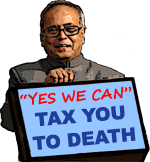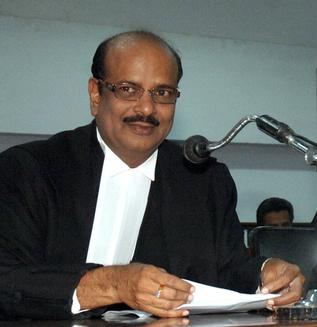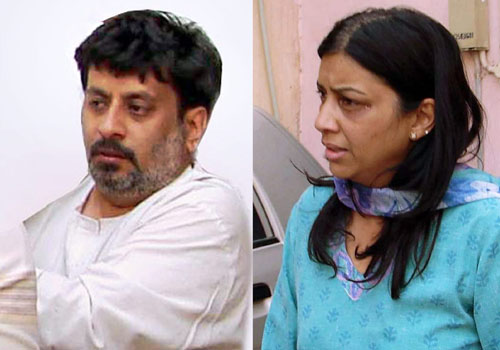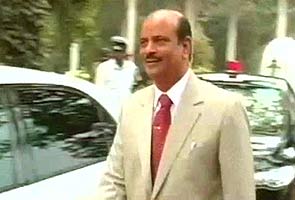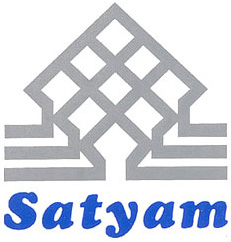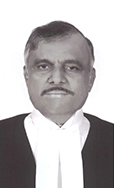12. Section 16(3) of the Hindu Marriage Act, 1955 reads as follows:
"16. Legitimacy of children of void and voidable marriages-
(1) xxx
(2) xxx
(3) Nothing contained in sub-section (1) or sub-section (2) shall be construed as conferring upon any child of a marriage which is null and void or which is annulled by a decree of nullity under section 12, any rights in or to the property of any person, other than the parents, in any case where, but for the passing of this Act, such child would have been incapable of possessing or acquiring any such rights by reason of his not being the legitimate child of his parents.
13. Thus, the abovementioned section makes it very clear that a child of a void or voidable marriage can only claim rights to the property of his parents, and no one else. However, we find it interesting to note that the legislature has advisedly used the word "property" and has not qualified it with either self-acquired property or ancestral property. It has been kept broad and general.
14. Prior to enactment of Section 16(3) of the Act, the question whether child of a void or voidable marriage is entitled to self-acquired property or ancestral property of his parents was discussed in a catena of cases. The property rights of illegitimate children to their father's property were recognized in the cases of Sudras to some extent.
15. In Kamulammal (deceased) represented by Kattari Nagaya Kamarajendra Ramasami Pandiya Naicker v. T.B.K. Visvanathaswami Naicker (deceased) & Ors., [AIR 1923 PC 8], the Privy Council held when a Sudra had died leaving behind an illegitimate son, a daughter, his wife and certain collateral agnates, both the illegitimate son and his wife would be entitled to an equal share in his property. The illegitimate son would be entitled to one-half of what he would be entitled had he been a legitimate issue. An illegitimate child of a Sudra born from a slave or a permanently kept concubine is entitled to share in his father's property, along with the legitimate children.
16. In P.M.A.M. Vellaiyappa Chetty & Ors. v. Natarajan & Anr., [AIR 1931 PC 294], it was held that the illegitimate son of a Sudra from a permanent concubine has the status of a son and a member of the family and share of inheritance given to him is not merely in lieu of maintenance, but as a recognition of his status as a son; that where the father had left no separate property and no legitimate son, but was joint with his collaterals, the illegitimate son was not entitled to demand a partition of the joint family property, but was entitled to maintenance out of that property. Sir Dinshaw Mulla, speaking for the Bench, observed that though such illegitimate son was a member of the family, yet he had limited rights compared to a son born in a wedlock, and he had no right by birth. During the lifetime of the father, he could take only such share as his father may give him, but after his death he could claim his father's self-acquired property along with the legitimate sons.
17. In Raja Jogendra Bhupati Hurri Chundun Mahapatra v. Nityanund Mansingh & Anr., [1889-90 Indian Appeals 128], the facts were that the Raja was a Sudra and died leaving behind a legitimate son, an illegitimate son and a legitimate daughter and three widows. The legitimate son had died and the issue was whether the illegitimate son could succeed to the property of the Raja. The Privy Council held that the illegitimate son was entitled to succeed to the Raja by virtue of survivorship.
18. In Gur Narain Das & Anr. v. Gur Tahal Das & Ors., [AIR 1952 SC 225], a Bench comprising Justice Fazl Ali and Justice Bose agreed with the principle laid down in the case of Vellaiyappa Chetty (supra) and supplemented the same by stating certain well- settled principles to the effect that "firstly, that the illegitimate son does not acquire by birth any interest in his father's estate and he cannot therefore demand partition against his father during the latter's lifetime. But on his father's death, the illegitimate son succeeds as a coparcener to the separate estate of the father along with the legitimate son(s) with a right of survivorship and is entitled to enforce partition against the legitimate son(s) and that on a partition between a legitimate and an illegitimate son, the illegitimate son takes only one-half of what he would have taken if he was a legitimate son." However, the Bench was referring to those cases where the illegitimate son was of a Sudra from a continuous concubine.
19. In the case of Singhai Ajit Kumar & Anr. v. Ujayar Singh & Ors., [AIR 1961 SC 1334], the main question was whether an illegitimate son of a Sudra vis-`-vis his self-acquired property, after having succeeded to half-share of his putative father's estate, would be entitled to succeed to the other half share got by the widow. The Bench referred to Chapter 1, Section 12 of the Yajnavalkya and the cases of Raja Jogendra Bhupati (supra) and Vellaiyappa Chetty (supra) and concluded that "once it is established that for the purpose of succession an illegitimate son of a Sudra has the status of a son and that he is entitled to succeed to his putative father's entire self-acquired property in the absence of a son, widow, daughter or daughter's son and to share along with them, we cannot see any escape from the consequential and logical position that he shall be entitled to succeed to the other half share when succession opens after the widow's death."
20. The amendment to Section 16 has been introduced and was brought about with the obvious purpose of removing the stigma of illegitimacy on children born in void or voidable marriage (hereinafter, "such children").
21. However, the issues relating to the extent of property rights conferred on such children under Section 16(3) of the amended Act were discussed in detail in the case of Jinia Keotin & Ors. v. Kumar Sitaram Manjhi & Ors. [(2003) 1 SCC 730]. It was contended that by virtue of Section 16(3) of the Act, which entitled such children's rights to the property of their parents, such property rights included right to both self-acquired as well as ancestral property of the parent. This Court, repelling such contentions held that "in the light of such an express mandate of the legislature itself, there is no room for according upon such children who but for Section 16 would have been branded as illegitimate any further rights than envisaged therein by resorting to any presumptive or inferential process of reasoning, having recourse to the mere object or purpose of enacting Section 16 of the Act. Any attempt to do so would amount to doing not only violence to the provision specifically engrafted in sub-section (3) of Section 16 of the Act but also would attempt to court relegislating on the subject under the guise of interpretation, against even the will expressed in the enactment itself." Thus, the submissions of the appellants were rejected.
22. In our humble opinion this Court in Jinia Keotin (supra) took a narrow view of Section 16(3) of the Act. The same issue was again raised in Neelamma & Ors. v. Sarojamma & Ors. [(2006) 9 SCC 612], wherein the court referred to the decision in Jinia Keotin (supra) and held that illegitimate children would only be entitled to a share of the self-acquired property of the parents and not to the joint Hindu family property.
23. Same position was again reiterated in a recent decision of this court in Bharatha Matha & Anr. v. R. Vijaya Renganathan & Ors. [AIR 2010 SC 2685], wherein this Court held that a child born in a void or voidable marriage was not entitled to claim inheritance in ancestral coparcenary property but was entitled to claim only share in self-acquired properties.
24. We cannot accept the aforesaid interpretation of Section 16(3) given in Jinia Keotin (supra), Neelamma (supra) and Bharatha Matha (supra) for the reasons discussed hereunder:
25. The legislature has used the word "property" in Section 16(3) and is silent on whether such property is meant to be ancestral or self-acquired. Section 16 contains an express mandate that such children are only entitled to the property of their parents, and not of any other relation.
26. On a careful reading of Section 16 (3) of the Act we are of the view that the amended Section postulates that such children would not be entitled to any rights in the property of any person who is not his parent if he was not entitled to them, by virtue of his illegitimacy, before the passing of the amendment. However, the said prohibition does not apply to the property of his parents. Clauses (1) and (2) of Section 16 expressly declare that such children shall be legitimate. If they have been declared legitimate, then they cannot be discriminated against and they will be at par with other legitimate children, and be entitled to all the rights in the property of their parents, both self-acquired and ancestral. The prohibition contained in Section 16(3) will apply to such children with respect to property of any person other than their parents.
27. With changing social norms of legitimacy in every society, including ours, what was illegitimate in the past may be legitimate today. The concept of legitimacy stems from social consensus, in the shaping of which various social groups play a vital role. Very often a dominant group loses its primacy over other groups in view of ever changing socio- economic scenario and the consequential vicissitudes in human relationship. Law takes its own time to articulate such social changes through a process of amendment. That is why in a changing society law cannot afford to remain static. If one looks at the history of development of Hindu Law it will be clear that it was never static and has changed from time to time to meet the challenges of the changing social pattern in different time.
28. The amendment to Section 16 of the Hindu Marriage Act was introduced by Act 60 of 76. This amendment virtually substituted the previous Section 16 of the Act with the present Section. From the relevant notes appended in the clause relating to this amendment, it appears that the same was done to remove difficulties in the interpretation of Section 16.
29. The constitutional validity of Section 16(3) of Hindu Marriage Act was challenged before this Court and upholding the law, this Court in Parayankandiyal Eravath Kanapravan Kalliani Amma (Smt.) & Ors. v. K. Devi and Ors., [(1996) 4 SCC 76], held that Hindu Marriage Act, a beneficial legislation, has to be interpreted in a manner which advances the object of the legislation. This Court also recognized that the said Act intends to bring about social reforms and further held that conferment of social status of legitimacy on innocent children is the obvious purpose of Section 16 (See para 68).
30. In paragraph 75, page 101 of the report, the learned judges held that Section 16 was previously linked with Sections 11 and 12 in view of the unamended language of Section 16. But after amendment, Section 16(1) stands de-linked from Section 11 and Section 16(1) which confers legitimacy on children born from void marriages operates with full vigour even though provisions of Section 11 nullify those marriages. Such legitimacy has been conferred on the children whether they were/are born in void or voidable marriage before or after the date of amendment.
31. In paragraph 82 at page 103 of the report, the learned Judges made the following observations: "In view of the legal fiction contained in Section 16, the illegitimate children, for all practical purposes, including succession to the properties of their parents, have to be treated as legitimate. They cannot, however, succeed to the properties of any other relation on the basis of this rule, which in its operation, is limited to the properties of the parents."
32. It has been held in Parayankandiyal (supra) that Hindu Marriage Act is a beneficent legislation and intends to bring about social reforms. Therefore, the interpretation given to Section 16(3) by this Court in Jinia Keotin (supra), Neelamma (supra) and Bharatha Matha (supra) needs to be reconsidered.
33. With the amendment of Section 16(3), the common law view that the offsprings of marriage which is void and voidable are illegitimate `ipso-jure' has to change completely. We must recognize the status of such children which has been legislatively declared legitimate and simultaneously law recognises the rights of such children in the property of their parents. This is a law to advance the socially beneficial purpose of removing the stigma of illegitimacy on such children who are as innocent as any other children.
34. However, one thing must be made clear that benefit given under the amended Section 16 is available only in cases where there is a marriage but such marriage is void or voidable in view of the provisions of the Act.
35. In our view, in the case of joint family property such children will be entitled only to a share in their parents' property but they cannot claim it on their own right. Logically, on the partition of an ancestral property, the property falling in the share of the parents of such children is regarded as their self acquired and absolute property. In view of the amendment, we see no reason why such children will have no share in such property since such children are equated under the amended law with legitimate offspring of valid marriage. The only limitation even after the amendment seems to be that during the life time of their parents such children cannot ask for partition but they can exercise this right only after the death of their parents.
36. We are constrained to differ from the interpretation of Section 16(3) rendered by this Court in Jinia Keotin (supra) and, thereafter, in Neelamma (supra) and Bharatha Matha (supra) in view of the constitutional values enshrined in the preamble of our Constitution which focuses on the concept of equality of status and opportunity and also on individual dignity. The Court has to remember that relationship between the parents may not be sanctioned by law but the birth of a child in such relationship has to be viewed independently of the relationship of the parents. A child born in such relationship is innocent and is entitled to all the rights which are given to other children born in valid marriage. This is the crux of the amendment in Section 16(3). However, some limitation on the property rights of such children is still there in the sense their right is confined to the property of their parents. Such rights cannot be further restricted in view of the pe- existing common law view discussed above. It is well known that this Court cannot interpret a socially beneficial legislation on the basis as if the words therein are cast in stone. Such legislation must be given a purposive interpretation to further and not to frustrate the eminently desirable social purpose of removing the stigma on such children. In doing so, the Court must have regard to the equity of the Statute and the principles voiced under Part IV of the Constitution, namely, the Directive Principles of State Policy. In our view this flows from the mandate of Article 37 which provides that it is the duty of the State to apply the principles enshrined in Chapter IV in making laws. It is no longer in dispute that today State would include the higher judiciary in this country. Considering Article 37 in the context of the duty of judiciary, Justice Mathew in Kesavananda Bharati Sripadagalvaru v. State of Kerala and another [(1973) 4 SCC 225] held:
"......I can see no incongruity in holding, when Article 37 says in its latter part "it shall be the duty of the State to apply these principles in making laws", that judicial process is `State action' and that the judiciary is bound to apply the Directive Principles in making its judgment."
38. Going by this principle, we are of the opinion that Article 39 (f) must be kept in mind by the Court while interpreting the provision of Section 16(3) of Hindu Marriage Act. Article 39(f) of the Constitution runs as follows:
"39. Certain principles of policy to be followed by the State: The State shall, in particular, direct its policy towards securing-
(a) xxx
(b) xxx
(c) xxx
(d) xxx
(e) xxx
(f) that children are given opportunities and facilities to develop in a healthy manner and in conditions of freedom and dignity and that childhood and youth are protected against exploitation and against moral and material abandonment."
39. Apart from Article 39(f), Article 300A also comes into play while interpreting the concept of property rights. Article 300A is as follows: "300A. Persons not to be deprived of property save by authority of law: No person shall be deprived of his property save by authority of law."
40. Right to property is no longer fundamental but it is a Constitutional right and Article 300A contains a guarantee against deprivation of property right save by authority of law.
41. In the instant case, Section 16(3) as amended, does not impose any restriction on the property right of such children except limiting it to the property of their parents. Therefore, such children will have a right to whatever becomes the property of their parents whether self acquired or ancestral.
42. For the reasons discussed above, we are constrained to take a view different from the one taken by this Court in Jinia Keotin (supra), Neelamma (supra) and Bharatha Matha (supra) on Section 16(3) of the Act.
43. We are, therefore, of the opinion that the matter should be reconsidered by a larger Bench and for that purpose the records of the case be placed before the Hon'ble the Chief Justice of India for constitution of a larger Bench.


